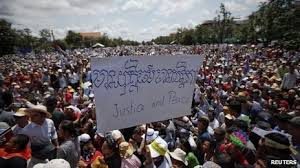Political Paradigm of Pragmatism from the Khmer Youth part 84
Op-Ed: The CEROC
This part (84), Mr. Sophan is appealing of eligible Cambodian voters to register to vote collectively in order to push for a positive change of the country. Since the election in 1993 organized by the United 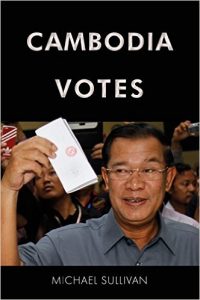 Nations, election was inclusive and nondiscriminatory by allowing all Cambodian voters to vote regardless of where they are residing. Many Cambodians overseas were able to join the election through different poling stations that UNs arranged in key cities such as New York, Paris, and Canberra etc.
Nations, election was inclusive and nondiscriminatory by allowing all Cambodian voters to vote regardless of where they are residing. Many Cambodians overseas were able to join the election through different poling stations that UNs arranged in key cities such as New York, Paris, and Canberra etc.
During this period of voters registration, our current NEC has failed itself by not making any significant decision-making to allowing or facilitating for Cambodians overseas to register to vote at all.
This inability is a failure to respect the will of the people from all walks of life. Hence, the worse intention of any body or party who has worked hard to manipulate the result of election, that doesn’t reflect the will of the voters, should not be vital to the dignity and survival of that person or part at all.

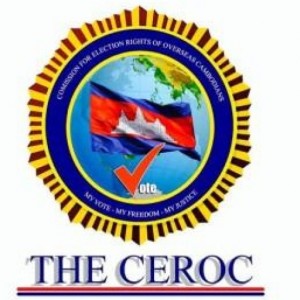
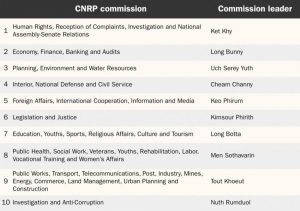
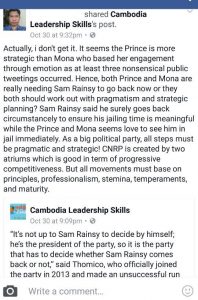 Sokha relinquish the competition by not positioning themselves as SRP and HRP any more. Now, they both are part of CNRP which has framed its smooth hierarchy and political bureaucracy on whom is President and whom is Vice President. The scores of latest public denouncement by some of the party’s prestigious member(s) towards their top leader(s) is not fun at all. All internal criticism according to democracy must be happened within its core framework of constructiveness and majorly within its circle executive members. Today, the “policy manifesto” is laid out and it must be properly implemented; tomorrow, the internal by-laws or party’s statute must be put in place. Those policy, platforms, or by-laws, must not just simply printed and handed over to members, the coaching team must work effectively to educate all members about them.
Sokha relinquish the competition by not positioning themselves as SRP and HRP any more. Now, they both are part of CNRP which has framed its smooth hierarchy and political bureaucracy on whom is President and whom is Vice President. The scores of latest public denouncement by some of the party’s prestigious member(s) towards their top leader(s) is not fun at all. All internal criticism according to democracy must be happened within its core framework of constructiveness and majorly within its circle executive members. Today, the “policy manifesto” is laid out and it must be properly implemented; tomorrow, the internal by-laws or party’s statute must be put in place. Those policy, platforms, or by-laws, must not just simply printed and handed over to members, the coaching team must work effectively to educate all members about them.